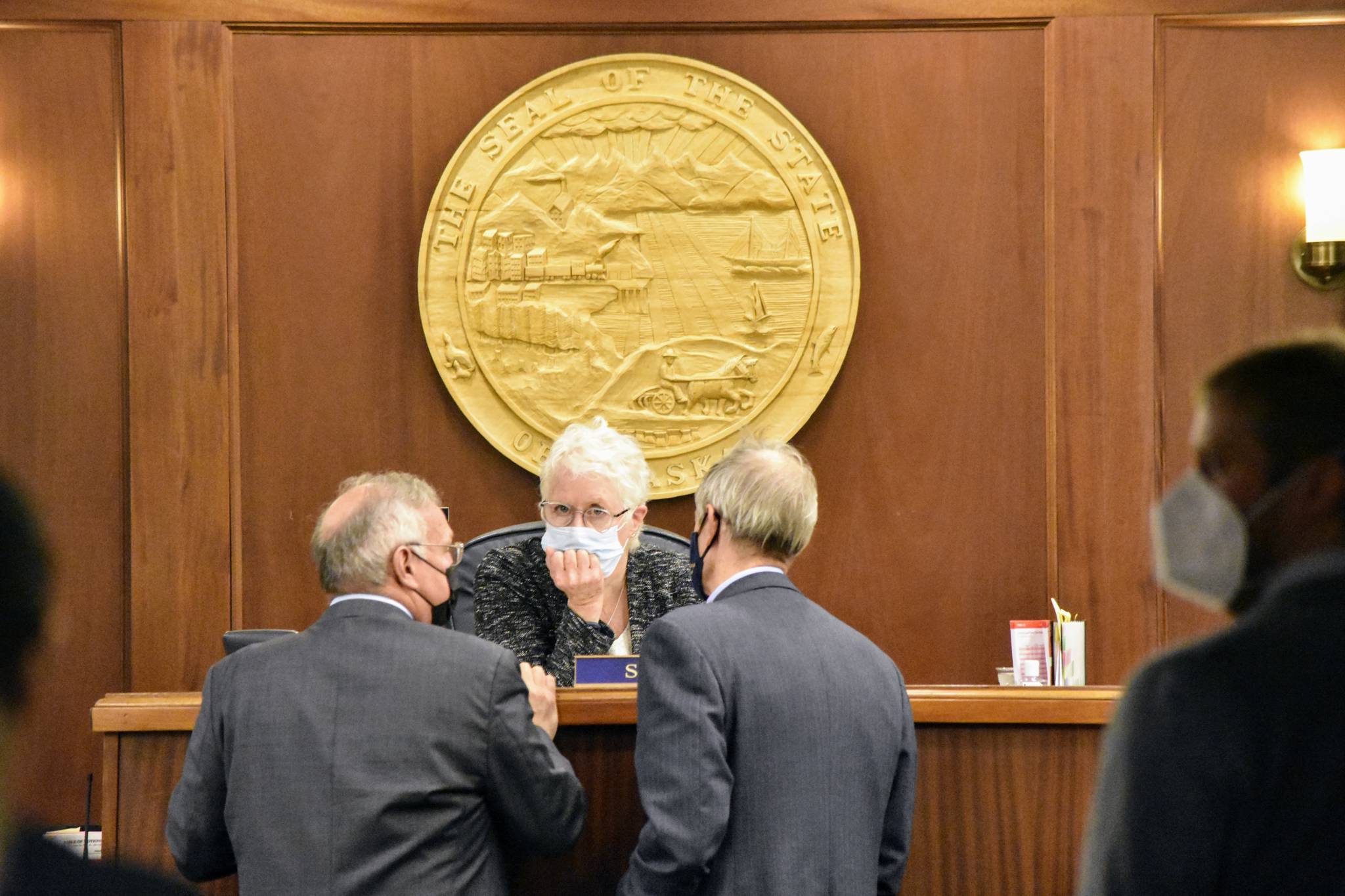A floor session of the House of Representatives was canceled Friday morning and rescheduled for Saturday at 10 a.m., once again delaying legislative work with only two weeks left in the special session.
Wednesday saw similar delays as members of the House minority caucus boycotted a floor session to introduce an appropriations bill from Gov. Mike Dunleavy. That bill was a key demand for members of the House majority coalition, who asked the governor to add an appropriations bill to the call of the special session in order to resolve the unfinished budget issues left over from the regular session and two previous special sessions.
But the original call of this special session was to resolve the state’s long-term fiscal issues, said House Minority Leader Cathy Tilton, and minority members are concerned those issues aren’t being addressed.
“There is nothing holding us back from holding simultaneous meetings,” Tilton said Friday, in a phone interview with the Empire. “There’s no reason why we can’t do that.”
Resolving the state’s fiscal issues has always been a key issue for the minority, Tilton said, and while the governor’s original intent for the August special session was to debate and resolve those issues, the majority hasn’t demonstrated a commitment to those policies.
In May, Dunleavy initially called two special sessions for the summer after the House took over a month to organize, delaying legislative work. Deep divisions in the Legislature meant the first special session turned into two, and still left the state’s budget partially unfunded. An agreement at the end of the last special session —the summer’s second — created a working group to draft policy recommendations to resolve the state’s fiscal issues. In July the governor delayed the start of the August session to allow those lawmakers more time.
[Legislative work stalled by House divisions]
But Tilton said the minority didn’t feel confident the policy issues aimed at resolving the state’s long-term fiscal deficit would be adequately addressed in this special session. The House Ways and Means Committee had a meeting scheduled for Monday regarding the recommendations of the fiscal policy working group, but Tilton said a meeting to discuss a constitutional spending limit was further out.
On Wednesday, members of the majority blamed minority members for political posturing and said minority members were avoiding the floor session because of the size of the Permanent Fund Dividend. House Finance Committee members voted Tuesday to lower the dividend from the governor’s proposed $2,350 to $1,100 and Wednesday voted to advance that bill.
Tilton said House Speaker Louise Stutes, R-Kodiak, sent an email Wednesday saying after the bill was introduced on the floor at 2 p.m. Wednesday, amendments would be due at 5 p.m. That wasn’t enough time for minority members to thoroughly vet the bill and draft amendments, Tilton said.
“The only thing that we have seen since Monday are floor sessions that have been canceled or made into technical sessions,” Tilton said. “We have not seen any movement on committees or things like that.”
Several lawmakers in both chambers of the Legislature and across the political spectrum want to finish the state’s budget which remains only partially funded. Part of the state’s funding is currently in the Constitutional Budget Reserve, which requires a two-thirds vote in both bodies to access.
“While I appreciate they would like to finish the budget process,” Tilton said. “We do need to have a discussion regarding the PFD, there is a law on the books of what the size of that dividend should be, there is a statutory formula.”
This year’s PFD is currently $0 after Dunleavy vetoed the appropriation made by the Legislature. Lawmakers in charge of the budget process split the funding source for the dividend, with roughly half the funds coming from the CBR.
Minority lawmakers balked at the tactics, and the state government almost experienced its first shutdown. That was avoided in the second special session, but minority members demanded fiscal solutions be given serious consideration and a working group be created. Dunleavy vetoed the roughly $500 remaining for a PFD and called on lawmakers to come back to the table to negotiate.
The governor has proposed a budget plan with a 50-50 scenario for the dividend. Half of the yearly percent of market value draw from the Alaska Permanent Fund would go to dividends and the rest to state spending. The appropriations bill Dunleavy introduced into this special session called for a PFD of $2,350 but requires lawmakers to draw more than the statutory 5% from the permanent fund.
Overdrawing the permanent fund has staunch opponents throughout the Legislature, but Dunleavy has said the move would be one time only.
The working group report says members agreed that one-time fiscal measures would be needed to help transition the state to a more stable fiscal path, but also said members could not agree on one approach. The working group recommended either a one-time overdraw proposal similar to the governor’s proposal or a “stairstep” proposal that gradually increases the PFD.
Rep. Jonathan Kriess-Tomkins, D-Sitka, one of the group’s facilitators, and Sen. Mike Shower, R-Wasilla, will present the group’s findings to the House Ways and Means Committee on Monday at 10 a.m.
• Contact reporter Peter Segall at psegall@juneauempire.com. Follow him on Twitter at @SegallJnuEmpire.

